In this Working Paper, Kathy Win discuses the role of CSOs, faith-based groups and ethnic armed organisations in harm reduction programmes in Northern Shan State.
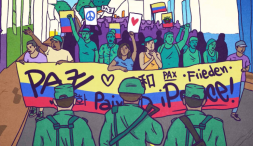
Reflecting on ‘impact’ in artist-academic collaborations in times of conflict
This article in the Journal of Humanitarian Affairs reflects on the challenges and opportunities of collaboration between artists and academics in making the animation ‘Colombia’s Broken Peace’.

Precarious lives, precarious treatments: Making drug treatment work in Northern Myanmar
This article explores how drug dependency treatment is made to work in efforts to sustain everyday livelihoods.

Voices from the borderlands 2022
Our flagship report, based on a collection of life stories that offer insights into how illicit drugs, violence and conflict, poverty and development, and insecurity and resilience are entangled in the everyday lives of people in the borderlands.
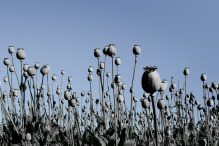
Spatial borderland biography: Afghanistan
Spatial data on four Afghan borderlands, including borders, opium production, drug routes, infrastructure and agriculture, available via UK Data Service.
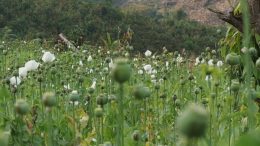
Myanmar datasets
Four datasets of interviews, media resources and life histories illicit drugs and youth in Myanmar, available via the UK Data Service.
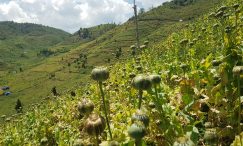
Brokered rule: Militias, drugs and borderland governance in the Myanmar-China borderlands
This Journal of Contemporary Asia article discusses how the illegal drug trade has become integral to systems of brokered rule in northern Shan State, Myanmar.
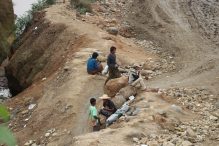
Critique of everyday narco-capitalism
This Third World Quarterly article discusses how capitalism alters life at the nexus of drug production, trade and consumption in the borderlands of Afghanistan, Colombia and Myanmar.
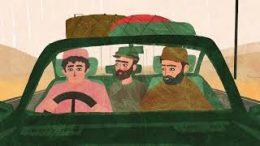
Entangled lives: conflict and illicit economies in Afghanistan
This animation tells the story of a smuggler on the border between Afghanistan and Iran.

Colombia’s Broken Peace
This animation tells the story of Roger, an Afro-Colombian activist, and Joanna, a peasant farmer, as they navigate lives impacted by conflict and the illicit drug economy in Colombia’s borderlands.

Naw Hkam’s Story: Youth and Drugs in the Borderlands of Kachin State, Myanmar
This comic tells the story of Naw Kam, a young man who describes the impact on his life of sustained drug use

Drugs & (dis)order Policy Lab: An experiment in sustained critical engagement between researchers and policymakers
This working paper shares reflections from an ongoing conversation between researchers and policy stakeholders on drugs, development and peacebuilding policy.

Afghanistan: heroin and human trafficking are the only two sectors of the economy still thriving
The trade in drugs and people are growing in importance as other sectors of Afghanistan’s economy contract or shut down and poverty deepens.

Militias, drugs and borderland governance
An overview of current literature on how militias and their relationship with illegal economies vary between countries and what accounts for these variations.

Pathways to opposing centralised and exclusionary drugs policy in Colombia
Six defining characteristics of the evolution of Colombia’s drugs policy and two possible entry point for policy influence with research.

Five considerations for international actors trying to engage with drugs policy in Myanmar
Based on analysis of how drugs policies and programmes intersect with conflict, peace, health and development in Myanmar.

International Journal of Drug Policy Special Issue: Drugs, conflict and development
Empirical research on the convergence of the drugs, development and peacebuilding policy fields.
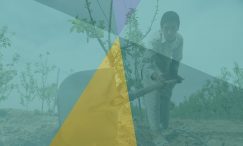
Drugs and development in Afghanistan: national policy and actor analysis
An overview of counter-narcotic laws, policies and programmes in Afghanistan since 2001 and what it means for policy engagement today.

Journeys to borderlands always seem to lead to unexpected surprises
Jonathan Goodhand’s journey to a remote Afghan village, gave him a rare glimpse into the intricacies of borderland political struggles.

Naming the elephant in the room to imagine better policy
Karen Brock argues for more open exchanges about that ‘elephant in the room’, especially among policymakers.

